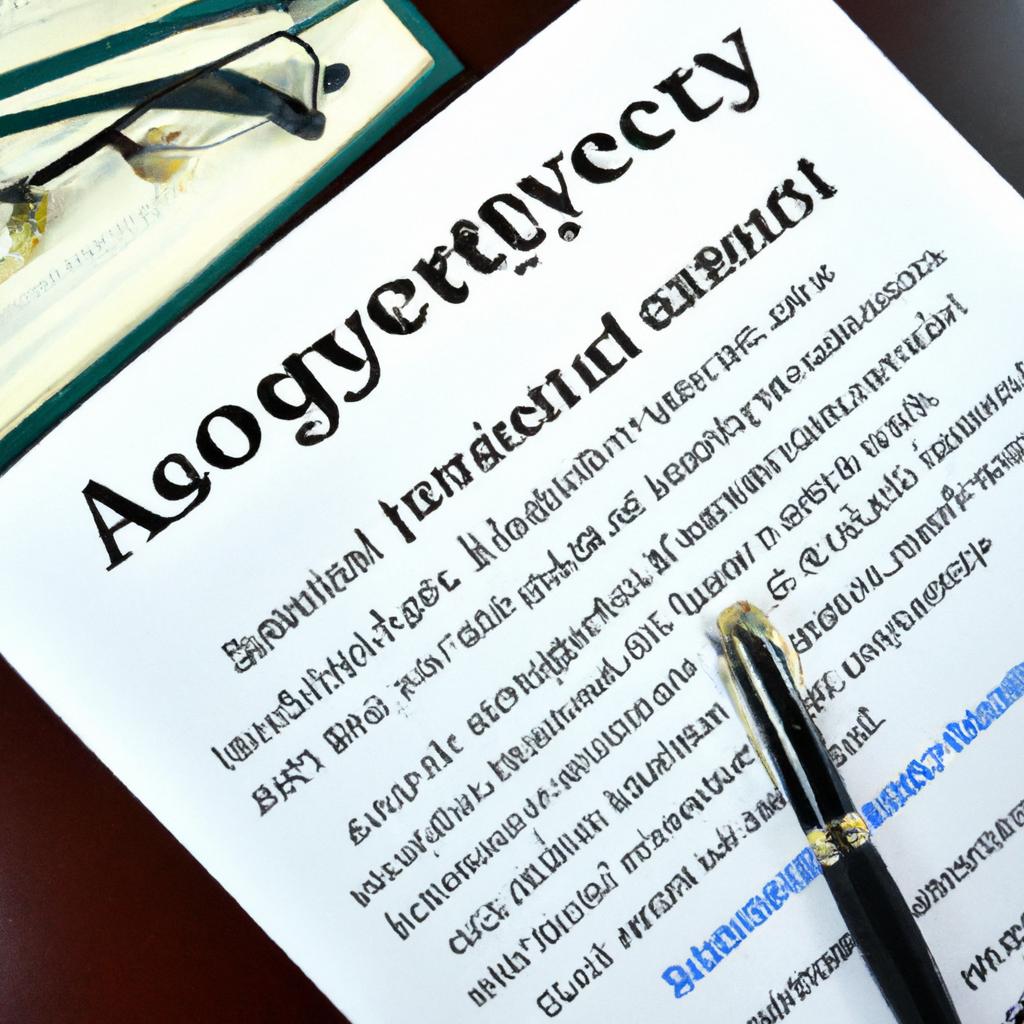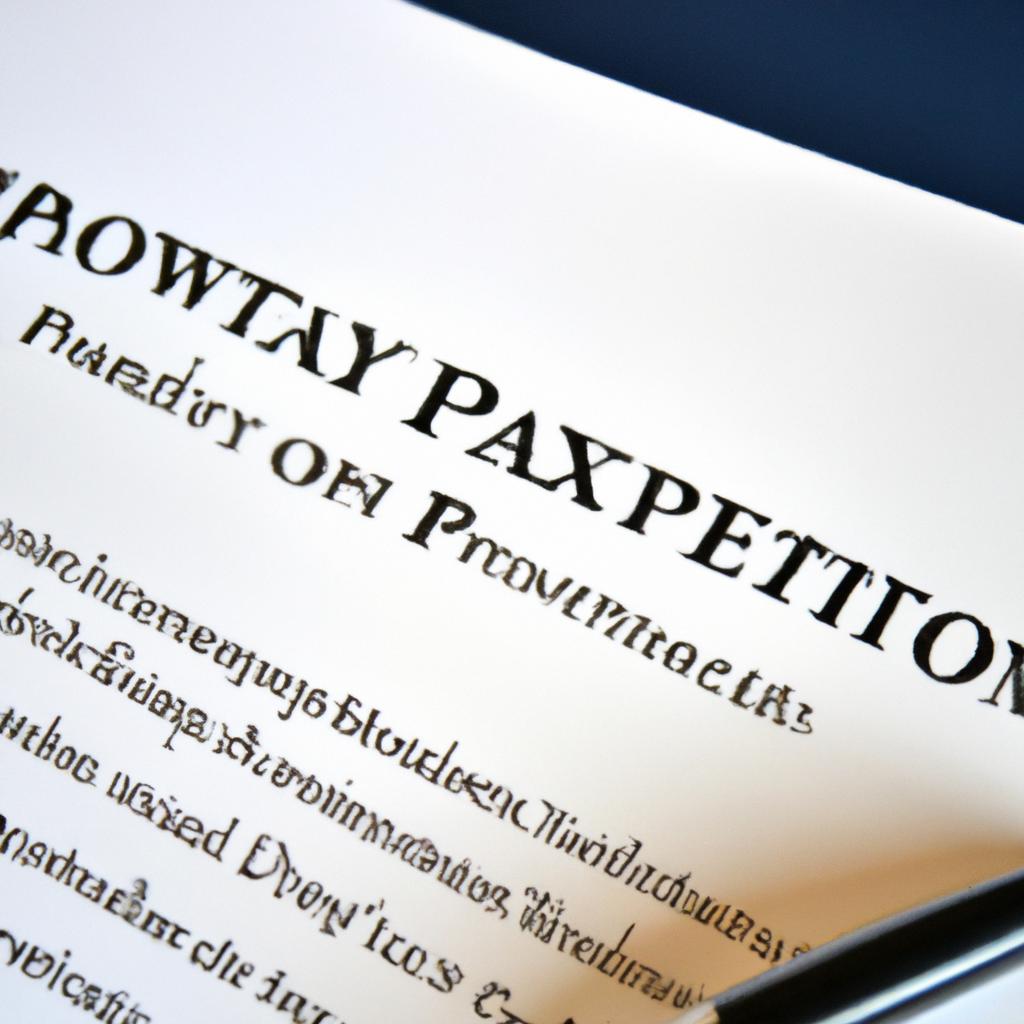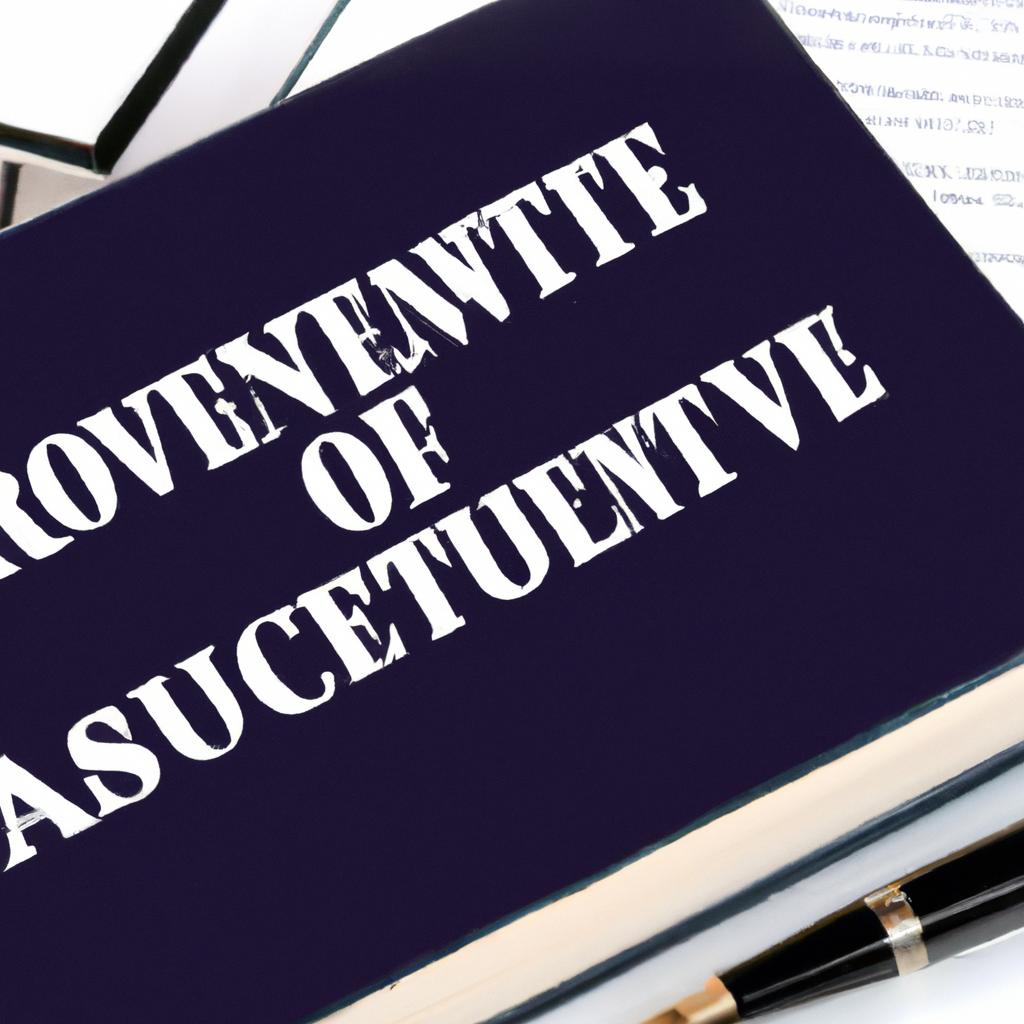As seasoned legal advisors at Morgan Legal Group in the bustling metropolis of New York City, we are well-versed in the intricacies of estate planning, probate, elder law, Wills, and trusts. One vital tool in these areas of law is the power of attorney, granting a designated individual the authority to make decisions on behalf of another. However, it is crucial to acknowledge that there are limitations to the power of attorney that must be understood and navigated with care. In this article, we will delve into the nuances of power of attorney limitations, providing insight and guidance for those looking to effectively utilize this powerful legal instrument in their estate planning strategies.
Understanding the Scope of Authority granted under a Power of Attorney Agreement
When it comes to , it is crucial to recognize the limitations that are in place. A power of attorney is a legal document that authorizes someone to act on behalf of another person in various matters. While this can be a powerful tool, it is essential to understand that there are specific boundaries and restrictions that must be adhered to.
Limitations of a power of attorney agreement include:
- Specific powers granted in the document
- Restrictions on certain actions or transactions
- Expiration date or conditions for termination
- Legal requirements that must be followed

Navigating the Legal Constraints and Restrictions of a Power of Attorney
When it comes to , it is crucial to understand the limitations that come with this powerful legal document. As an experienced attorney, I have seen firsthand the importance of knowing the boundaries of a Power of Attorney to avoid any legal complications or disputes. Below, I have outlined some key points to consider when dealing with the constraints of a Power of Attorney:
- Scope of Authority: It is essential to clearly define the scope of authority granted to the agent in the Power of Attorney document. This will help prevent any misunderstandings or misuse of power by the agent.
- Fiduciary Duty: The agent must always act in the best interests of the principal, as they owe a fiduciary duty to the principal. Any actions taken by the agent that go against this duty can result in legal consequences.

Maximizing Protections and Safeguards through Specific Provisions in a Power of Attorney Document
When creating a power of attorney document, it is crucial to include specific provisions and limitations to maximize protections and safeguards for the principal. By including detailed restrictions and guidelines, the document can prevent abuse of power and ensure that the agent acts in the best interest of the principal at all times.
Some key limitations that can be included in a power of attorney document include:
- Financial Restrictions: Clearly outline the scope of financial powers granted to the agent, limiting their ability to make certain transactions or decisions without the principal’s approval.
- Medical Decision-Making: Specify whether the agent has the authority to make medical decisions on behalf of the principal, and if so, under what circumstances and limitations.

Strategies for Avoiding Abuse and Misuse of Power of Attorney Responsibilities
In order to prevent abuse and misuse of power of attorney responsibilities, it is important to establish clear limitations and boundaries. One strategy is to ensure that the power of attorney document explicitly outlines the specific powers granted to the agent. This can help to prevent any misunderstandings or misuse of authority.
Another effective strategy is to regularly review and monitor the actions of the agent. This can be done by requesting periodic reports on financial transactions and other activities carried out on behalf of the principal. By staying informed and vigilant, the risk of abuse or misuse of power of attorney can be significantly reduced.
Q&A
Q: What is a power of attorney?
A: A power of attorney is a legal document that allows someone to make decisions on behalf of another person in various areas of their life.
Q: What are the limitations of a power of attorney?
A: While a power of attorney can grant broad authority to the appointed individual, there are limitations in terms of specific actions that can be taken, such as making medical decisions without explicit authorization.
Q: Can a power of attorney be revoked?
A: Yes, a power of attorney can be revoked at any time by the individual who granted it, as long as they are still of sound mind.
Q: Are there different types of power of attorney?
A: Yes, there are different types of power of attorney that grant authority in specific areas, such as financial decisions, healthcare decisions, and property management.
Q: How can someone ensure their power of attorney is used responsibly?
A: It is important to carefully choose a trustworthy individual as your power of attorney and clearly outline the scope of their authority in the legal document to avoid any potential misuse of power.
Concluding Remarks
In conclusion, while a power of attorney can be a valuable tool for managing someone’s affairs, it is important to be aware of its limitations. Understanding the scope of authority granted and the responsibilities involved can help ensure that the arrangement serves its intended purpose without overstepping boundaries. By keeping these limitations in mind, individuals can make informed decisions and protect their interests when appointing someone to act on their behalf. Remember, knowledge is power, even when it comes to powers of attorney.
 Understanding the Power of Attorney Limitations: What You Need to Know
Understanding the Power of Attorney Limitations: What You Need to Know
A power of attorney (POA) is a legal document that grants someone else the power to act and make decisions on behalf of the person who created it. This can be a valuable tool for those who are unable to make decisions for themselves, whether due to illness, disability, or other circumstances. However, like any legal document, there are limitations to the power of attorney that should be understood and considered before drafting and executing one. In this article, we will delve into the power of attorney limitations and provide valuable insights to help you make informed decisions.
What is a Power of Attorney and How Does it Work?
A power of attorney is a legal document that allows someone (the principal) to appoint someone else (the agent or attorney-in-fact) to make decisions and act on their behalf. The principal can grant the agent general or specific powers, depending on their needs and preferences.
A general power of attorney gives the agent broad powers to handle the principal’s affairs, including financial, legal, and personal matters. On the other hand, a specific or limited power of attorney limits the agent’s powers to a particular matter, such as selling a property or signing a document.
The power of attorney only remains valid while the principal is alive and mentally competent. If the principal becomes incapacitated or passes away, the POA automatically becomes null and void, and the agent’s powers are terminated. Additionally, the principal always has the right to revoke the power of attorney as long as they are mentally competent.
Understanding the Limitations of Power of Attorney
Even though a power of attorney can be a useful tool for managing one’s affairs, there are some limitations that should be taken into consideration.
1. Limited by the Terms of the Document
The most significant limitation of a power of attorney is that it is only valid as long as the principal is alive and mentally competent. If the POA explicitly states that it is only valid for a certain period or specific event, it will expire once that time has passed, or the event has occurred. Similarly, if the principal regains their mental capacity, the POA becomes invalid.
2. Limited by State Laws
Each state has its laws governing power of attorney, and these laws can vary significantly. Some states may not recognize a power of attorney executed in another state. Therefore, it is essential to understand the specific regulations in your state to ensure your POA is legally valid and recognized.
3. Limited by the Agent’s Powers
The principal has the discretion to grant the agent general or specific powers depending on their needs. However, the power of attorney document must include these powers explicitly, or they will not be legally granted. Therefore, it is vital to discuss and review the powers granted to the agent carefully to ensure they align with the principal’s intentions.
4. Cannot Override the Principal’s Decisions
A common misconception about a power of attorney is that the agent can make decisions that contradict the principal’s wishes. However, an agent’s role is to make decisions that are in the best interest of the principal, and they cannot overstep this boundary. If an agent makes decisions that go against the principal’s wishes, they can be held legally responsible.
5. Cannot Make Decisions on End-of-Life Care
A power of attorney does not give the agent the power to make decisions on end-of-life care or execute a living will. For these matters, a separate document, such as a healthcare proxy, is required.
Practical Tips for Creating a Power of Attorney
To ensure your power of attorney is legally valid and covers all your needs, here are some practical tips to consider:
– Work with a reputable attorney who has experience in creating power of attorney documents.
– Review the document carefully before signing and ensure all the necessary powers are included.
– Consider appointing an alternate agent in case the primary agent is unable to perform their duties.
– Keep the original copy of the POA in a safe place and give a copy to your agent.
– Review and update the POA regularly to ensure it reflects your current wishes and situation.
Real-Life Case Study
In 2008, actor Gary Coleman’s life support was disconnected after a legal battle between his ex-wife and ex-girlfriend who both claimed to be his power of attorney. This case highlights the importance of ensuring your power of attorney is legally valid and names the right person as your agent.
The Power of Attorney Limitations: Final Thoughts
A power of attorney can be an invaluable tool for managing one’s affairs, but it is not without limitations. It is crucial to understand these limitations and seek professional advice before executing a POA to ensure it meets your specific needs and complies with state laws. And, as with any legal document, regular review and updates are necessary to ensure it reflects your current wishes and circumstances.
In conclusion, a power of attorney is a powerful legal document, but it is essential to understand its limitations to avoid potential legal and personal complications. We hope this article has provided valuable insights to help you make informed decisions when it comes to creating a power of attorney. Remember, when in doubt, always seek the advice of a qualified attorney.

